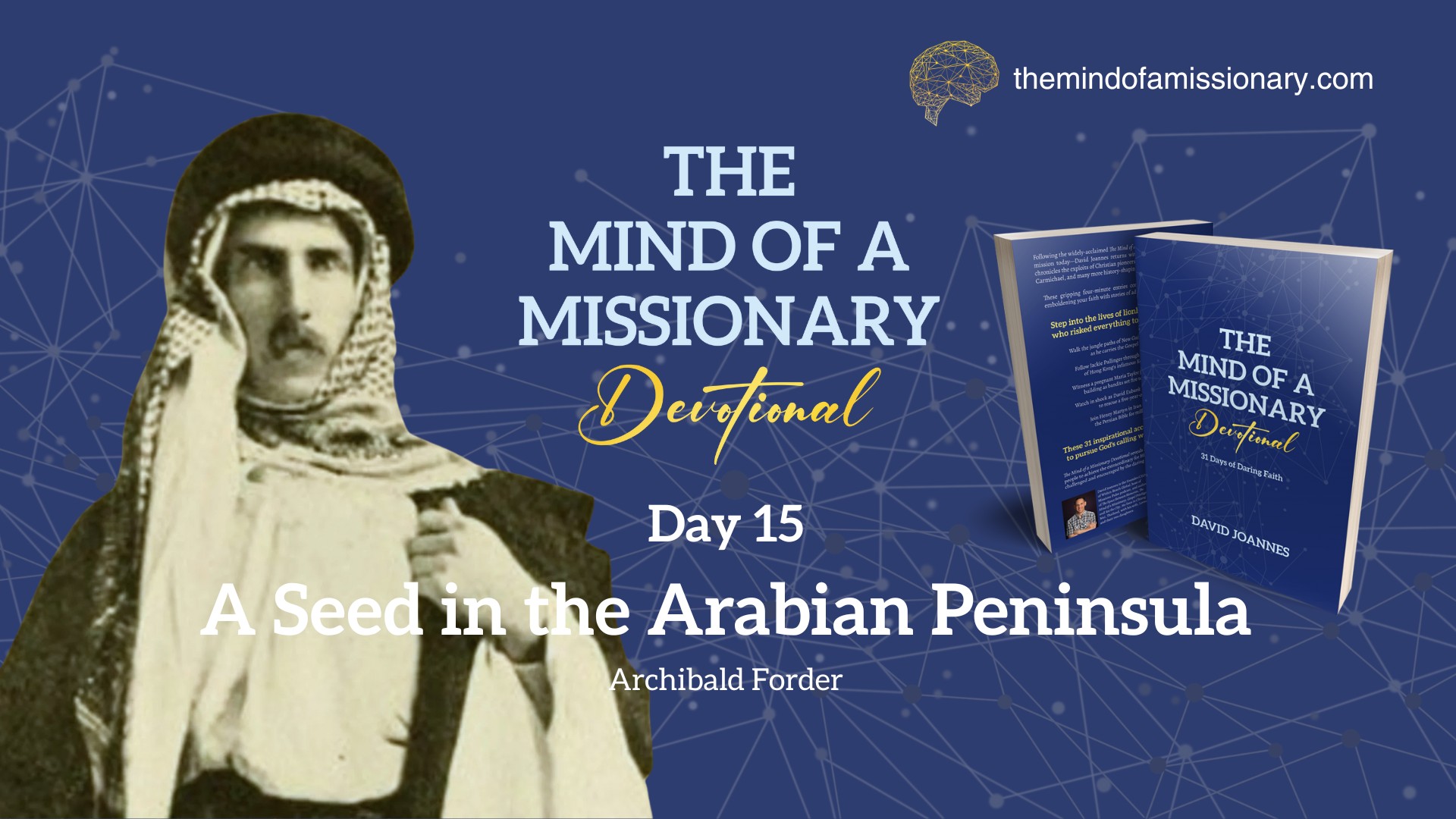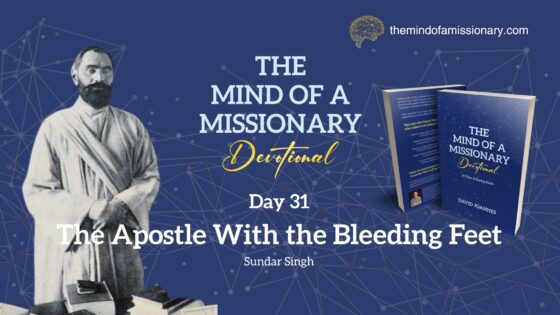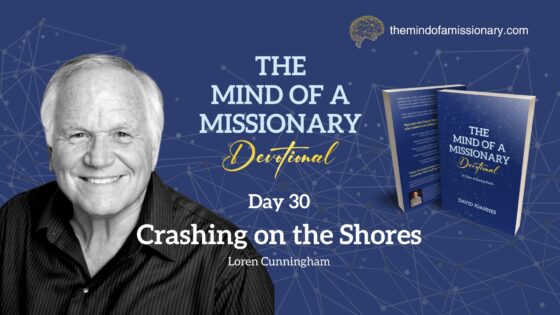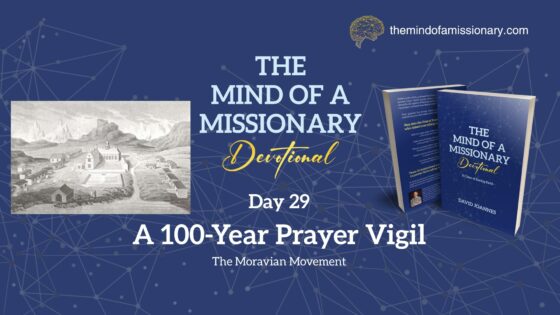Day 15
The Mind of a Missionary Devotional
A Seed in the Arabian Peninsula
Archibald Forder
“We are hard pressed on every side, but not crushed; perplexed, but not in despair; persecuted, but not abandoned; struck down, but not destroyed.” — 2 Corinthians 4:8-9
A crashing bottle glanced off Archibald’s temple, leaving a trail of blood oozing down his cheek. He stumbled, ears ringing, as the cell erupted into chaos around him. A stool leg caught his shin as it spun through the air, ripping his pants and leaving a gash on his skin. He collapsed against the cell bars, gripping his leg as the brawl raged on unabated.
The prisoners waged war with fists, shanks, and curses while the missionary caught in between vainly sought shelter in the corner of the Turkish prison. The cell doors crashed open, and the guards swarmed in with bayonets raised, firing on the prisoners. All was quiet in the aftermath but for the shuffling of feet on the bloodied floor and the wincing of pain from Muslim inmates.
The fifty-one-year-old missionary to Bedouin nomads had been incarcerated and accused of being a political spy on Friday morning, November 6, 1914. Authorities intercepted one of his letters to churches in England; its title, “To Evangelize Ishmael,” caused suspicion. His three-month sentence in a Jerusalem cell turned into four years in Damascus.
Life was difficult for the only Christian Englishman in a prison filled with Muslims. The tiny twenty-yard square cell housed sixty-seven of the prison’s twelve hundred men. “How shall I describe the inside of that hell upon earth?” Archibald wrote. “What with vile tobacco smoke, charcoal fumes, and the smell from dirty, unwashed bodies, the atmosphere was enough to poison the strongest.” The damp floor bred millions of hungry and vicious mosquitoes. The struggle for life favored the strong, and the weak succumbed to diseases like smallpox, cholera, dysentery, and fevers of many kinds. “Without doubt,” the missionary admitted, “my past hard life and living among the Bedouin had fitted me to endure the hardships, privations, and trials of prison life.”
Archibald Forder was born in Salisbury, England, on September 2, 1863. God stirred his heart for the mission field at an early age. Before turning ten, he began collecting funds for foreign missionaries, often soliciting his friends to join his holy cause. On a hot summer night in August 1874, the young British boy was awed by Robert Moffat’s depictions of missionary life in Africa. The same “smoke of a thousand villages” that propelled David Livingstone to Africa now thrilled the young boy’s imagination. Archibald stood at the crossroads of eternity, praying God would use him to impact distant lands without Gospel hope, too.
Archibald sailed with his wife to the Arabian desert on September 3, 1891. After arriving in Jaffa, the port of Southern Palestine, the couple embarked on a four-day journey by camel to Kerak, Jordan, on September 30. But the arduous travels took a toll on his wife’s body. Eight months later, Archibald wrote on May 7, 1892, “Without any warning and without time even for a word of farewell, my wife fell dead in our room before me.” Despite the devastating loss, Archibald gave himself entirely to the cause of Christ in the Arabian Peninsula, saying, “I must not give up what God has called me to.”
He continued making numerous evangelistic journeys into the secluded areas of the Sinai, reaching out to Bedouins who lived in remote encampments. He dressed as an Arab, with a long scarf wrapped about his head, secured by the black rope of twisted goat hair. Loaded with Arabic Scriptures and Gospel leaflets, he pondered as he rode, “What would be the outcome of this quiet, simple, inexpensive advance movement toward the land and birthplace of the great antagonist of Christianity, the religion of Islam?”
Danger lurked around every bend. Armed bandits robbed him of food and clothing, and sickness nearly took his life. Still, he plodded on, passionate about extending God’s Kingdom to nomadic Arab tents and communities. He traveled thousands of miles by camel, horseback, and foot, putting Gospel booklets into the hands of hundreds of men and women in the Middle East. However, as far as anyone could tell, the seeds sown by Archibald Forder never formed the harvest he expected to witness before he died in 1934.
But God’s Word remained true, as the Psalmist boldly proclaimed: “Those who go out weeping, carrying seed to sow, will return with songs of joy, carrying sheaves with them” (Psalm 126:6). The harvest was coming in God’s perfect timing.
Archibald believed God would nurture every word he spoke and every kindness he showed, preserving each seed for its future bloom. Perhaps the missionary himself was the seed God would one day use to unlock Gospel access to millions of Muslims in the Arabian Peninsula.
– Personal Response –
Passage: We are hard pressed on every side, but not crushed; perplexed, but not in despair; persecuted, but not abandoned; struck down, but not destroyed. (2 Corinthians 4:8-9)
Point: Even when the harvest is unseen, faithfulness in suffering plants seeds God will one day grow.
Ponder: Are you willing to sow Gospel seeds in hard soil, even if you never see the fruit in your lifetime?
Prayer: Lord, make me faithful in the unseen and uncelebrated places. Help me trust You with the harvest, even when I only see the soil. In Jesus’ name, amen.
Proclamation: I will not give up when the ground is hard. My faithfulness is a seed in God’s hands, and I trust He will call forth a harvest in His own good time.
Practice: Choose one person or place that seems spiritually barren, and intentionally sow a seed of hope or truth there this week, whether through prayer, kindness, or a word of encouragement.
Learn more about The Mind of a Missionary Devotional at themindofamissionary.com




